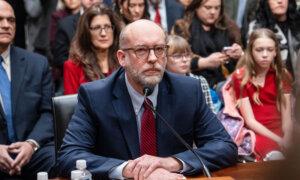Trump openly criticized the diversity, equity, and inclusion initiatives championed by the WEF.
WASHINGTON—President Donald Trump delivered an “America First” speech on Thursday to global elites at this year’s Davos summit in Switzerland, declaring, “America is back and open for business.”
Speaking virtually at the World Economic Forum (WEF), Trump urged global business leaders to invest in the United States, warning them of tariffs if they don’t.
Just days after taking office, Trump signed a series of executive orders aimed at tackling inflation, reducing crime, and securing the southern border.
“My message to every business in the world is very simple: Come make your product in America,” Trump told global business and political leaders.
He went on to promise that his administration would offer some of the lowest taxes in the world, with significant reductions to corporations.
“But if you don’t make your product in America—which is your prerogative—then very simply you will have to pay a tariff,” he said, adding that these tariffs could add up to trillions of dollars for the U.S. Treasury.
Executives, bankers, and policymakers have gathered in the Alpine ski village for the 55th annual WEF meeting, running from Jan. 20 to 24. Since Trump’s inauguration, many of these leaders have been closely monitoring his actions.
During his address, Trump also openly criticized the “diversity, equity, and inclusion” (DEI) and “net-zero” initiatives championed by the WEF.
“My administration has taken action to abolish all discriminatory diversity, equity, and inclusion nonsense,” Trump told the Davos summit.
“America will once again become a merit-based country—you have to hear that word: merit-based country—and I’ve made it official, an official policy of the United States, that there are only two genders: male and female. And we will have no men participating in women’s sports and transgender operations.”
He also expressed concerns about NATO’s heavy dependence on the United States, urging member nations to increase their contributions to defense spending to 5 percent of GDP, an idea he has advocated for a long time.
During the Q&A session, Trump also criticized the European Union for not treating American companies, such as Google, Apple, and META, fairly, pointing to the recent penalties these companies have been forced to pay.
“We’re going to do something about it, but nobody’s happy with it,” he said.
He also took aim at Bank of America CEO Brian Moynihan and JPMorgan CEO Jamie Dimon for their actions against conservatives in the United States.
“I don’t know if the regulators mandated that because of Biden or what, but you and Jamie and everybody, I hope you open your banks to conservatives, because what you’re doing is wrong,” he said.
Nearly 3,000 people from 130 countries are attending this year’s summit, Klaus Schwab, founder and executive chairman of the WEF, said ahead of Trump’s address.
“The global challenges we face today are monumental,” Schwab said during his opening remarks. “The importance of American leadership and your personal leadership in this regard is fundamental and paramount,” he told Trump.
Since his inauguration on Monday, he has signed several executive orders aimed at eliminating DEI-focused policies and programs within the federal government. He issued a memo directing that all federal employees working on DEI initiatives be put on paid leave.
Additionally, he ordered the suspension of federal funding to any schools that mandate DEI provisions or hire contractors who engage in such practices.
During the summit, Trump said that he would provide rapid approvals to companies in the United States and promised to double the country’s oil and gas production.
He said he declared a National Energy Emergency “to unlock the liquid gold under our feet.”
Schwab, a German economist and professor, established the WEF in 1971 with the aim of advancing “stakeholder capitalism,” which advocates that corporations serve the interests of all stakeholders, massively broadening the scope beyond shareholders, to whom a company is normally beholden.
Stakeholders can include employees, suppliers, lenders, customers, the environment, and society at large.
Over the years, the WEF has evolved into a globally recognized forum for dialogue. It tackles what it identifies as urgent global challenges—such as the climate, poverty, wealth inequality, food security, and pandemics—and brings together the public and private sectors.
In recent years, however, the forum has increasingly faced criticism, with questions raised about the usefulness of its debates in resolving the struggles of regular people.
The climate remains a key focus at Davos, but the liberal use of private jets by its attendees has led to accusations of hypocrisy. Further, inviting individuals with questionable human rights records, such as Chinese Communist Party leaders, has raised concerns about the forum’s credibility.
Original News Source Link – Epoch Times
Running For Office? Conservative Campaign Consulting – Election Day Strategies!


